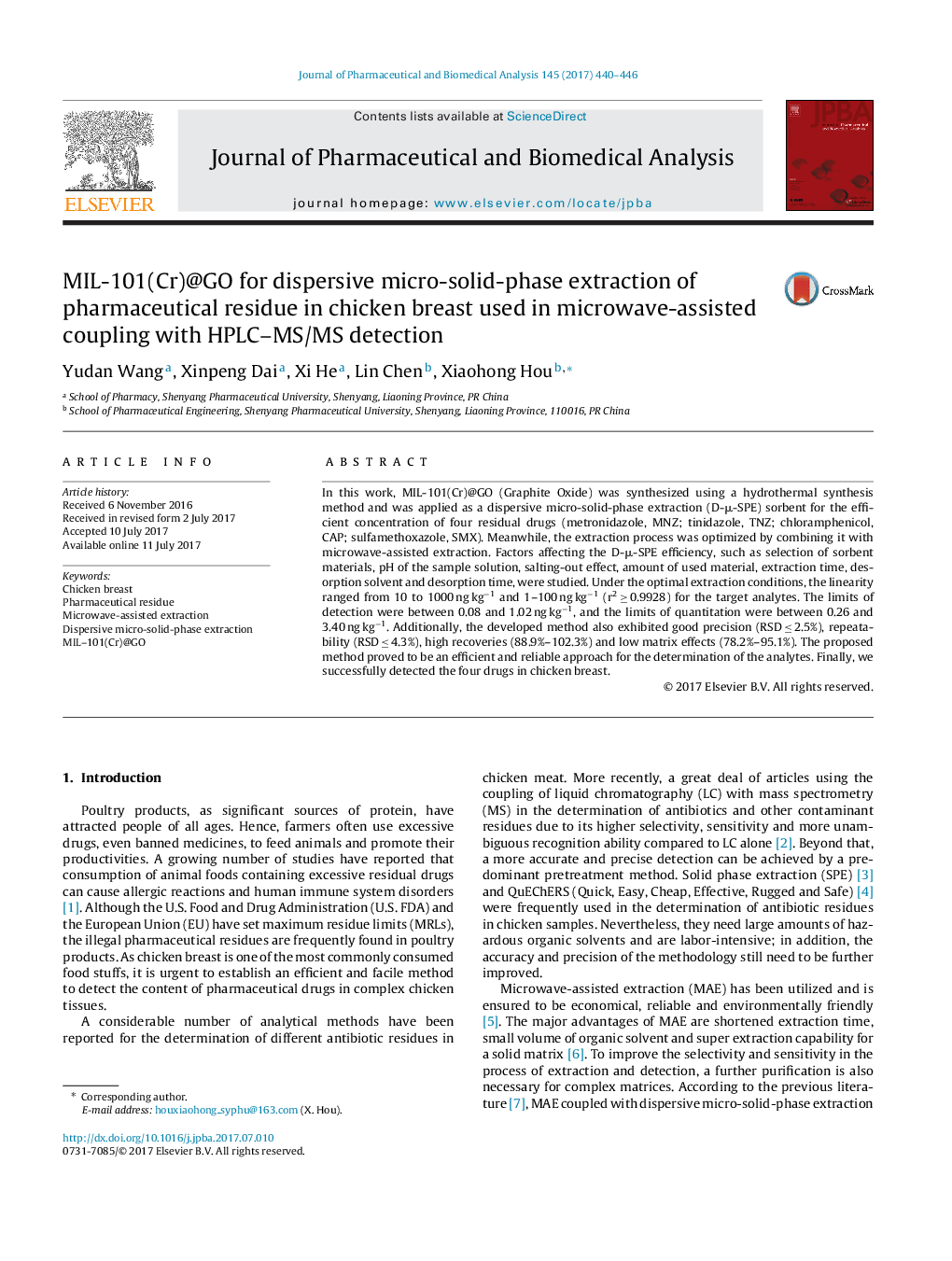| Article ID | Journal | Published Year | Pages | File Type |
|---|---|---|---|---|
| 5137782 | Journal of Pharmaceutical and Biomedical Analysis | 2017 | 7 Pages |
Abstract
In this work, MIL-101(Cr)@GO (Graphite Oxide) was synthesized using a hydrothermal synthesis method and was applied as a dispersive micro-solid-phase extraction (D-μ-SPE) sorbent for the efficient concentration of four residual drugs (metronidazole, MNZ; tinidazole, TNZ; chloramphenicol, CAP; sulfamethoxazole, SMX). Meanwhile, the extraction process was optimized by combining it with microwave-assisted extraction. Factors affecting the D-μ-SPE efficiency, such as selection of sorbent materials, pH of the sample solution, salting-out effect, amount of used material, extraction time, desorption solvent and desorption time, were studied. Under the optimal extraction conditions, the linearity ranged from 10 to 1000 ng kgâ1 and 1-100 ng kgâ1 (r2 â¥Â 0.9928) for the target analytes. The limits of detection were between 0.08 and 1.02 ng kgâ1, and the limits of quantitation were between 0.26 and 3.40 ng kgâ1. Additionally, the developed method also exhibited good precision (RSD â¤Â 2.5%), repeatability (RSD â¤Â 4.3%), high recoveries (88.9%-102.3%) and low matrix effects (78.2%-95.1%). The proposed method proved to be an efficient and reliable approach for the determination of the analytes. Finally, we successfully detected the four drugs in chicken breast.
Keywords
Related Topics
Physical Sciences and Engineering
Chemistry
Analytical Chemistry
Authors
Yudan Wang, Xinpeng Dai, Xi He, Lin Chen, Xiaohong Hou,
